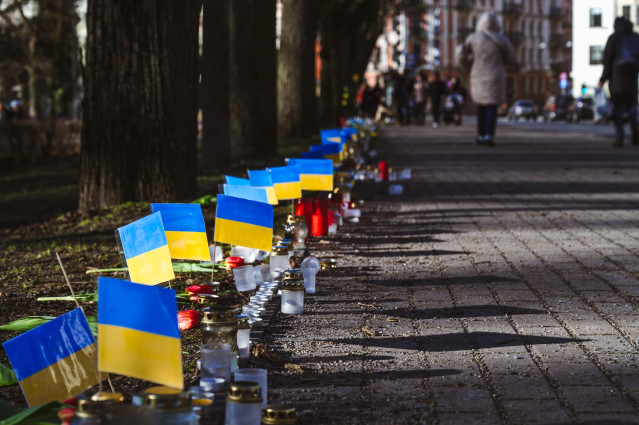
Russia has been cut off from the SWIFT international payments system. But what does that mean for the economies of other countries?
Following the Russian unjustified and widely condemned invasion of Ukraine on the 24th of February, a decision was made by the United States and its allies to suspend some Russian banks from the SWIFT banking system. SWIFT is a global payments system that allows financial institutions like banks to conduct smooth and rapid transfer of money across borders. It stands for Society for Worldwide Interbank Financial Telecommunication. There are now growing calls for a total SWIFT usage system ban to be imposed upon all Russian financial institutions, as part of the sanctions aimed at punishing Russia for committing a crime against humanity by launching the unprovoked attack.
I agree that all Russian institutions should be banned from using the SWIFT system due to the catastrophic attack on Ukraine, which is causing untold suffering to many civilians and forcing thousands of Ukrainians to seek refuge in neighbouring countries like Poland, Romania, Slovakia, Moldova and Hungary. However, a friend of mine, who did not want his name to be mentioned, is of the view that if SWIFTis truly an international system, shouldn’t the whole international community decide who can use it? (Countries like China have criticised the SWIFT ban as well as the other sanctions being put on Russia.)
My friend feels that this lack of international decision making means that some countries don't get a say about being impacted negatively by SWIFT exclusions. As he pointed out, excluding Russia from SWIFT is also effectively imposing sanctions on any country which is trading with Russia. The friend added that in this context, the West is as usual overlooking the fact that the world consists of many countries, some of which cannot afford the economic fallout of cutting out all their business with Russia.
The friend pointed out that Germany also did not really warm up to the idea of excluding Russia from SWIFT, due to concerns about its economic impact on the German people. He mentioned that recently the German finance minister, Christian Lindner, justified his concerns over the SWIFT ban by talking about the effects it would have on the German market.
Following the argument that I had with my friend, I was left reflecting on the hypocrisy of many Western nations on the issue of economic sanctions. I believe that when a crime against humanity is committed, like what happened when Russia invaded Ukraine, there should be no half measures or double standards employed. Decisions should be made irrespective of who will be mostly affected by the decisions. So in my view, and that of my friend, the decision that was finally made to impose a SWIFT ban on ‘some’ Russian banks and not on all Russian banks and other financial institutions, is very hypocritical. It is a typical example of how the West is at times prepared to sacrifice human lives on the altar of expediency.
In a similar vein, the reported ill treatment by some European border officials of African students escaping from Ukraine as they attempt to cross into Poland and other bordering countries leaves much to be desired. Reports on social media, that were also broadcast by Aljazeera, highlighted the plight of the African students who were being told to go to the back of the queue - after waiting at the borders for many hours - because they are not Ukrainians. The students mentioned that they are being told by border officials that they should give priority to Ukrainians even though they are also running away from Ukraine. I believe that such behaviour by Western nations towards refugees, whether they are Africans, Syrians, Afghans, Iranians or Somalians should be widely condemned by the international community. The exemplary welcoming manner that we are witnessing being extended to Ukrainian refugees who are flocking into the countries which share their borders with Ukraine, should also be extended to other refugees or asylum seekers from different parts of the world.
About the author
Selbin Kabote is a Zimbabwean-born Birmingham based journalist. Selbin has worked for many years as a media trainer in the UK. He worked with migrants and asylum seekers to arm them with the media tools that they need to speak in the media and in public life. The tools also enable them to create their own media platforms for the purpose of telling their stories.
Before coming to the UK many years ago, Selbin worked as a Sub-Editor for the Zimbabwe Broadcasting Corporation-ZBC in Zimbabwe and as a journalist producer for the external broadcaster of the South African Broadcasting Corporation - Channel Africa in Johannesburg, South Africa.
Selbin is an activist who believes in the power of highlighting positive arguments for migration as he is of the strong opinion that many migrants who come to settle in the UK have the will and capacity to make the country a great place.
This article is part of our Voices of the Economy series. The project brings together the economic experiences and opinions of people from a range of different backgrounds and showcases voices which are not heard as often when we talk about the economy. To find out more and share your own story, click here.



